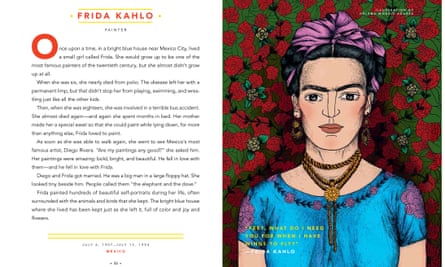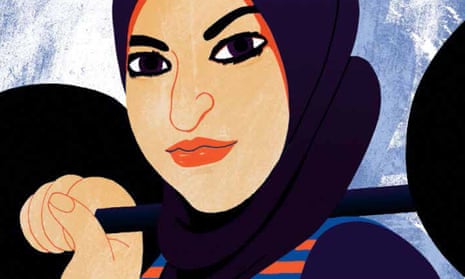Children’s stories have often followed the same pattern: a girl is in trouble and enlists the help of a boy to get her out of this or that sticky situation. Then they live happily ever after. You only need to look at the classic fairytales to see this is the case. Of course, some fictional heroines have broken away from this mould. Anne of Green Gables, in the series by L M Montgomery, is inquisitive and bright, and Roald Dahl’s Matilda is famously brave and wise beyond her years. But, in picture books for younger readers, heroines such as these have always been few and far between.
As a child, the characters I looked up to were Disney Channel stars such as Lizzie McGuire, who I loved for her kindness and independence, or the members of girl bands such as Destiny’s Child and the Spice Girls, who always struck me as strong and in control. The females who my peers and I would pretend to be in the playground were Hermione Granger from J K Rowling’s Harry Potter series, or Buffy Summers, the resilient heroine of Buffy The Vampire Slayer. Looking back, I can see that these role models weren’t perfect, but I can also see how much I needed them. Just seeing these powerful females showed me that I was capable, too. This is why role models matter.
But even as children’s fiction authors began to write about girls who broke out of the traditional, polite mould, children’s non-fiction lagged behind. While boys have long been well served by a plethora of sub-genres featuring male role models, ranging from battles to space exploration, real-life women’s achievements have largely been missing from children’s books.

So there could be no more welcome news for young female readers, or everyone who cares about the future of women, than the stunning success of Goodnight Stories for Rebel Girls, by Elena Favilli and Francesca Cavallo, an anthology of stories about important women. Last year, that book became the most-funded publishing Kickstarter of all time, raising $675,614 (£517,000). In 2017, this record has already been broken by the sequel, Goodnight Stories for Rebel Girls 2, which has raised more than $866,000.
It’s not just Americans who have made a space for these books, by Elena Favilli and Francesca Cavallo, on their shelves. They have been translated and sold in Italy, France and China, among other countries. The inspirational achievements of the painter Frida Kahlo, tennis players Serena and Venus Williams and writer Virginia Woolf, have become such a huge and inspirational hit for young readers.
However, Goodnight Stories for Rebel Girls has shown that there is space for feminism in children’s non-fiction – and a big space at that. Since its success, many other non-fiction accounts of brilliant women have followed suit. A New York Times bestseller, Women in Science: 50 Fearless Pioneers Who Changed the World by Rachel Ignotofsky, includes easily understandable diagrams on the gender pay gap, as well as true stories of women who have changed the world of science, and beautiful illustrations. Ignotofsky’s book is definitely different.
In the same vein, but for younger children, is Fantastically Great Women Who Changed History by Kate Pankhurst, with its exciting accounts of the adventures of the likes of Amelia Earhart and Rosa Parks.
The female role models offered by this new sub-genre of feminist non-fiction are smart, capable and brave. They are pioneers and leaders. They are coders, scientists and activists. Feminism, as the unfolding sexual abuse scandals in the worlds of politics and entertainment show, has never been more needed than it is now in 2017. Thankfully, parents are starting to look for new heroines for their children to pore over before going to sleep. And where better to start than with real women from history who have shown exactly how heroic girls can be?
